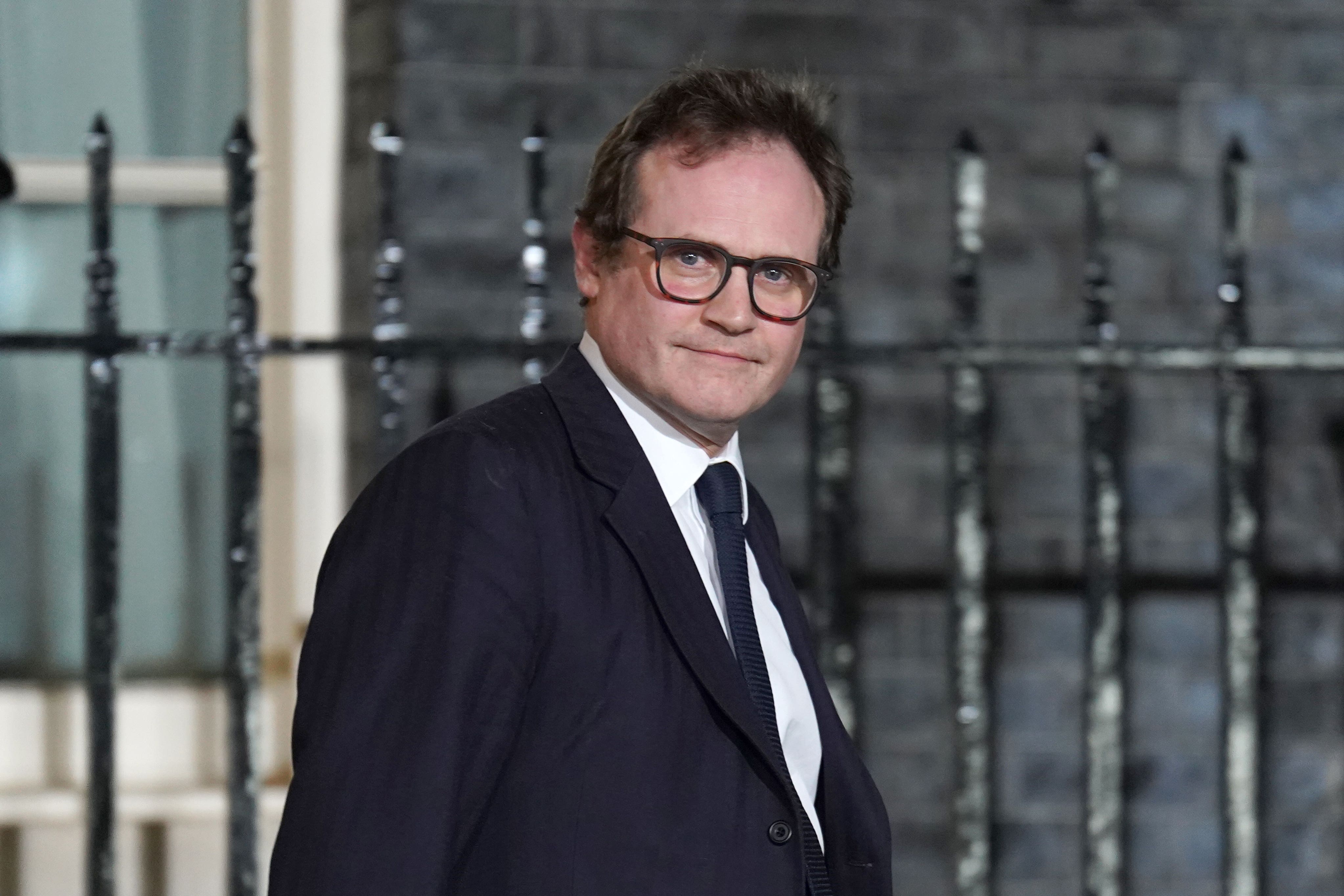Security minister raises concerns over TikTok as news source
Tom Tugendhat said ‘challenges’ could be created if Beijing declares the platform’s algorithms a national security asset.

Your support helps us to tell the story
From reproductive rights to climate change to Big Tech, The Independent is on the ground when the story is developing. Whether it's investigating the financials of Elon Musk's pro-Trump PAC or producing our latest documentary, 'The A Word', which shines a light on the American women fighting for reproductive rights, we know how important it is to parse out the facts from the messaging.
At such a critical moment in US history, we need reporters on the ground. Your donation allows us to keep sending journalists to speak to both sides of the story.
The Independent is trusted by Americans across the entire political spectrum. And unlike many other quality news outlets, we choose not to lock Americans out of our reporting and analysis with paywalls. We believe quality journalism should be available to everyone, paid for by those who can afford it.
Your support makes all the difference.The security minister has raised concerns about a growing number of young people reading the news on social media sites such as the Chinese-owned TikTok.
Tom Tugendhat warned on Tuesday that “challenges” could be created if Beijing declares the platform’s algorithms a national security asset.
He used a speech at the Policy Exchange think tank to stress it is “critical” that the public knows where debates are coming from.
“We shouldn’t be having them triggered by outside forces and a hidden hand. For too long foreign interference has been slowly creeping into British democracy,” he said.
Mr Tugendhat, who is among the politicians who have been sanctioned by China, said the most pressing issues for Government are the “acute threats”.
“But it’s the strategic threats to our democracy because the acts are part of a systemic campaign over a long period of time to degrade our sovereignty that concern me most,” he added.
The reality is there are many different platforms around, TikTok is one of them, and the reality is editorial control is exercised by algorithms that are programmed by individuals
The minister raised the threat from Russia as well as Iran, and the “so-called overseas police stations that China has set up around the country”.
But he raised the alarm about a growing number of young people getting their news from TikTok, which is owned by Chinese firm ByteDance.
“The influence of social media platforms on our younger generations here in the UK and around the world is pervasive. The contents on these platforms will influence minds,” he said.
“Yet it’s worth noting that foreign states hold considerable sway over the algorithms that are the editor on these sources. The challenge for a free country like ours is how we manage this debate.”
Mr Tugendhat was pressed whether he thinks TikTok is being used as a tool by the Chinese state.
“The reality is there are many different platforms around, TikTok is one of them, and the reality is editorial control is exercised by algorithms that are programmed by individuals,” he said.
“The idea that these are some neutral actors scientifically controlled editorial decisions, they’re not, they’re chosen.
“They’re just chosen by someone who has programmed them in advance rather than somebody who’s decided whether to run your news story or somebody else’s news story.
“Whether or not these sources are being used to influence or shape debate today, may not be the question. The truth is the bridge is being built and what’s crossing it is yet to be worked out.”
But he did not say whether the Government is planning to regulate TikTok.
Instead, Mr Tugendhat said: “If ByteDance declare, for example, the TikTok algorithm, or rather the Chinese state declare the algorithm, a national security asset, that poses challenges.”
In August, Parliament closed its TikTok account after MPs raised concerns about user data being sent to Beijing.
A TikTok spokeswoman responded: “TikTok is an independent platform, with a global leadership team. We are open about how our recommendation system works, and publish regular transparency reports which demonstrate our content moderation in practice.
“We’re working to provide researchers, academics and civil society even more access to public and anonymised data about content and activity on our platform.”